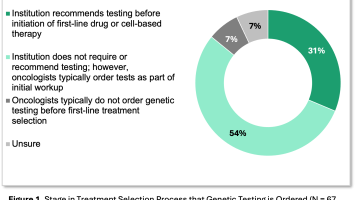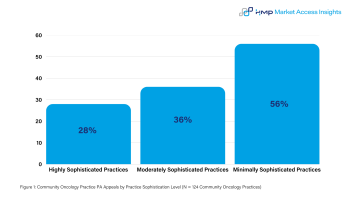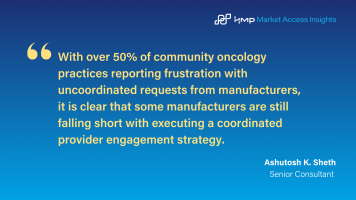Opportunities in Community Oncology Practice Partnerships With Health Systems
The Community Oncology Alliance (COA) enjoyed an outstanding attendance of nearly 2000 registrants for this year’s annual conference. Attendees included a substantial number of providers eager to hear about developments in the business of delivering care and learn about the changing regulatory landscape.
Daniel Buchenberger and I attended on behalf of MARIN, spending our time engaging with community oncology leaders from practices and network organizations, and attending a range of insightful panel discussions.
Here’s What We Heard
Community oncology practices’ relationships with local hospital systems has been a topic of our research for several years now, and our primary research strongly suggests that groups with formal or informal alliances experience rising patient volumes while those without are more likely to experience flat or declining patient volumes. These relationships range from informal coordination of care and second opinions (with academic medical centers) to formal joint ventures with shared ownership of capital assets.
Community Group Alliances With Hospitals
Leaders from 2 alliances discussed their experiences in developing and operating programs with shared responsibilities for patient care.
Genesis Cancer and Blood Institute and CHI St. Vincent in Arkansas described their collaboration to expand access to care in rural and semi-rural areas. The collaboration allows both organizations to expand access to hospital and community-based services through avoiding duplicative investments in services and technology. Examples of this included Genesis Cancer and Blood Institute’s decision to not provide radiation oncology or surgical services and instead invest in community-based PET-CT services, while CHI St. Vincent avoided adding the modality.
Memorial Sloan Kettering (MSK) operates a network of 27 affiliated hospitals outside Manhattan. As MSK expanded its geographic reach, the integrated delivery network (IDN) developed a system of patient management called “Share Care,” which facilitated use of non-MSK resources in outlying areas through case management and clinical data exchange. New York Cancer & Blood Specialists initially began rounding on MSK patients in Long Island, NY, hospitals, leveraging MSK’s Share Care teams to ensure continuity of care. The group now rounds on as many as 100 patients admitted to (mostly) 5 hospitals each night. MSK closely tracks patient satisfaction and quality metrics, reviewing the relevant metrics with the group each month.
The partnership deepened in 2023 when MSK and New York Cancer & Blood Specialists opened a new comprehensive outpatient clinic in Flatbush, NY, an underserved part of Brooklyn. New York Cancer & Blood Specialists and a group of MSK physicians (members of “Memorial Care, PC) both see patients in the facility.
Key Takeaways
Community groups can strengthen their businesses through developing formal and informal alliances with the hospitals operating in their markets. These alliances can ensure more effective use of resources and reduce duplication of services and technology by “sharing patients,” with each organization providing clearly defined parts of a patient’s episode of care. Other key takeaways include:
Alliances do not need to be “all or nothing” arrangements
New York Cancer & Blood Specialists continues to offer a full range of services, including a high volume of surgery despite its alliance with MSK
CHI St. Vincent, Little Rock, AR, is a 340B entity with an employed medical oncologist and provides chemotherapy infusion to its patients, while CHI St. Vincent Hot Springs is not 340B-eligible and Genesis Cancer and Blood Institute provides most chemotherapy infusions.
Alliances are not always formalized with legal agreements
A former client group of ours developed a radiation oncology suite with its neighboring hospital and rents the suite and non-MD personnel in a block lease arrangement where the professional services and facility fees are billed separately by the organizations. The lease itself is the only governing document for the alliance
CHI St. Vincent and Genesis Cancer and Blood Institute do not employ formal agreements as they seek the most efficient approaches to fill gaps in care.
Why It Matters
Consolidation is the single most important long-term trend in the structure of health care delivery in the US. Oncologists practicing in community practice settings, and hospitals coping with rising costs and constrained reimbursement, will continue to find ways to collaborate in ways that are sensible economically and clinically.










